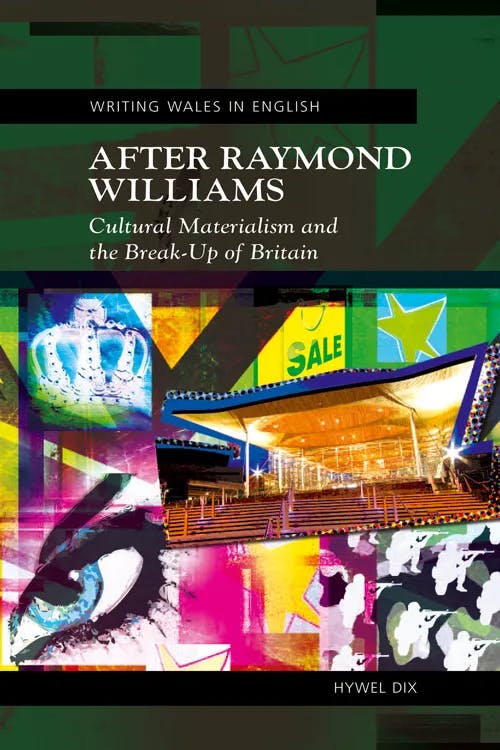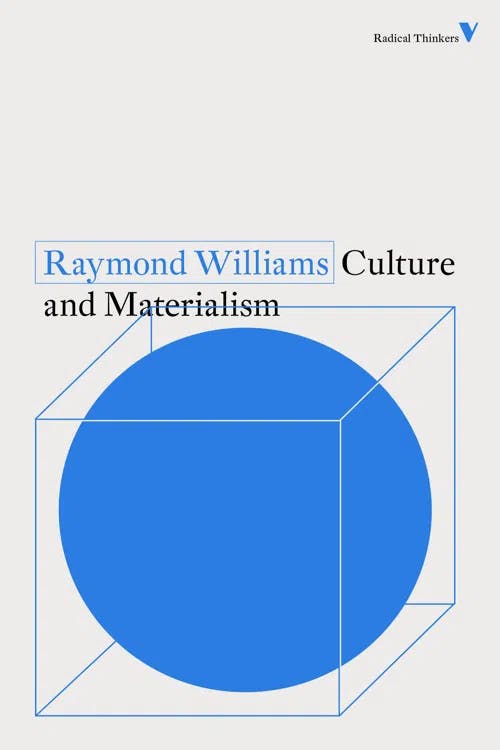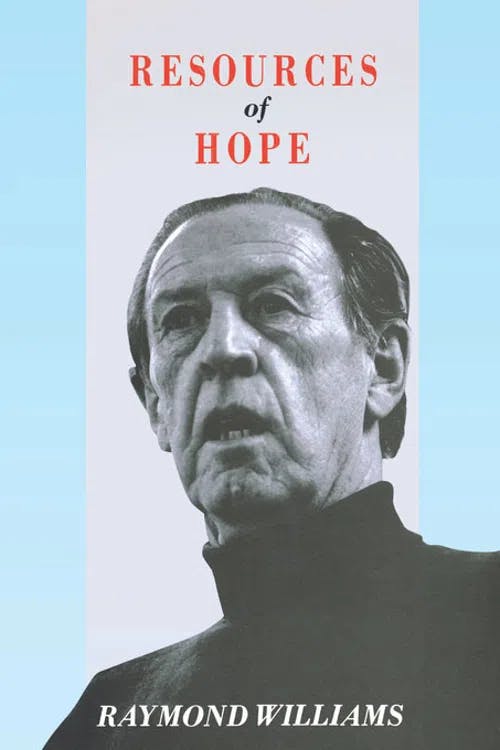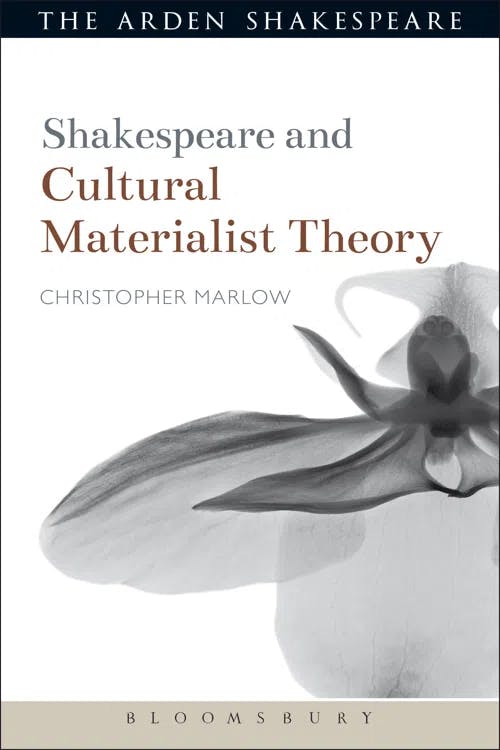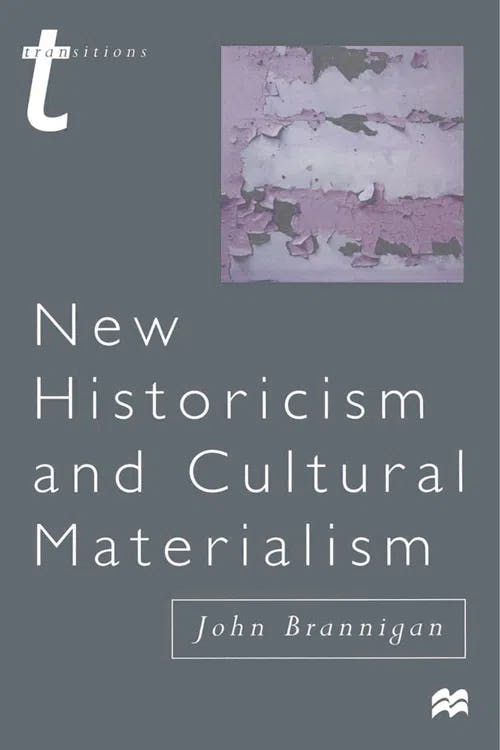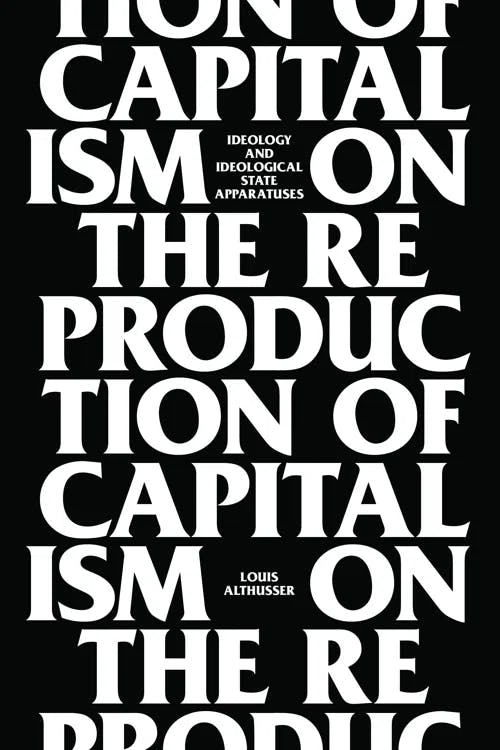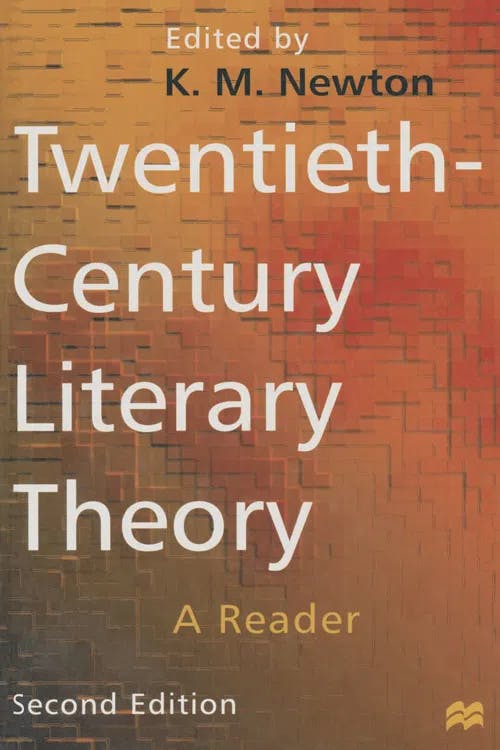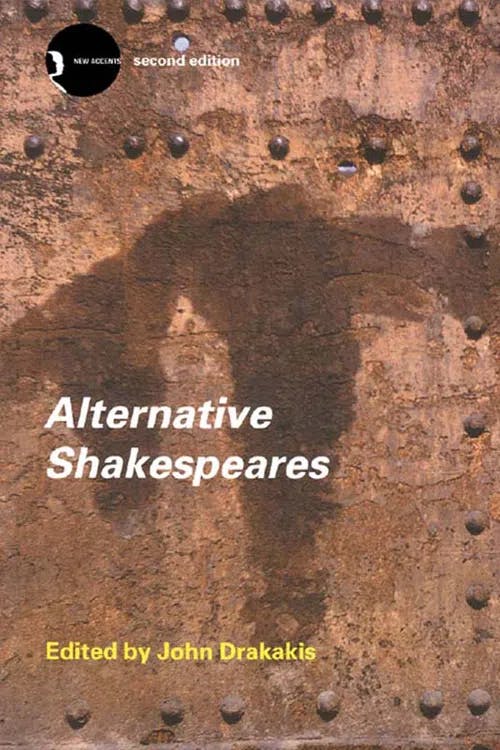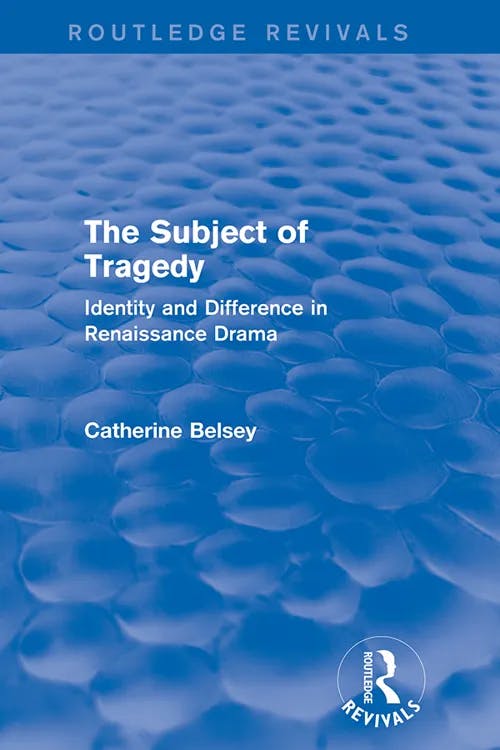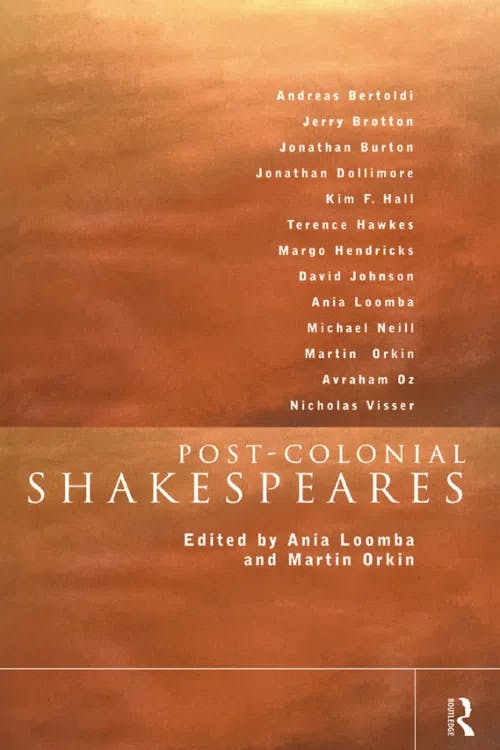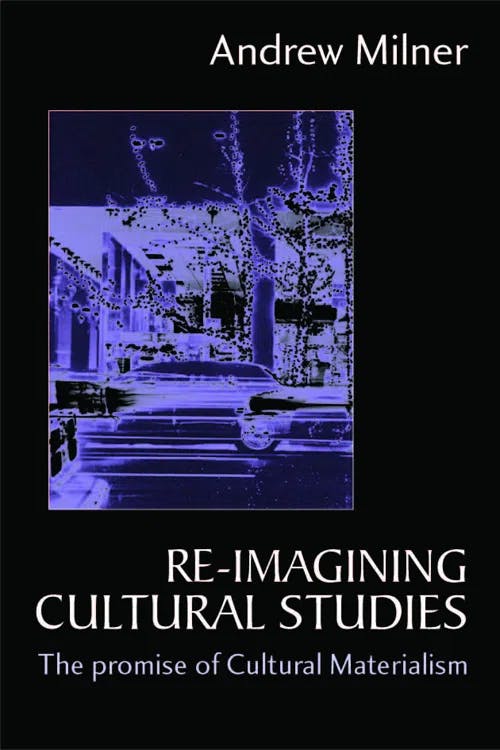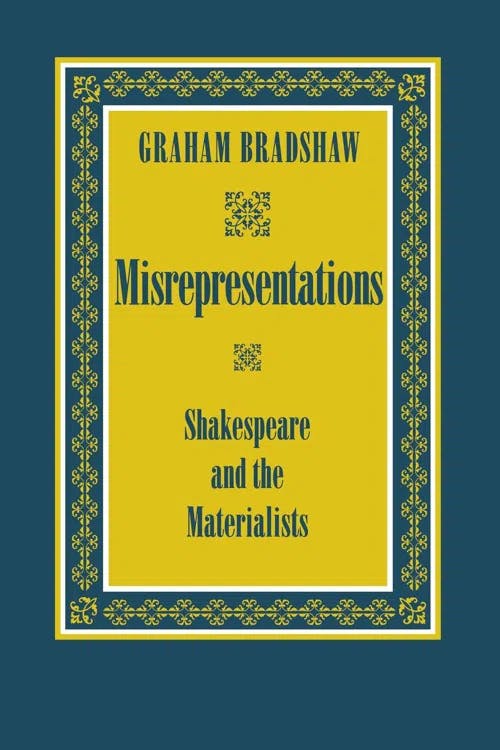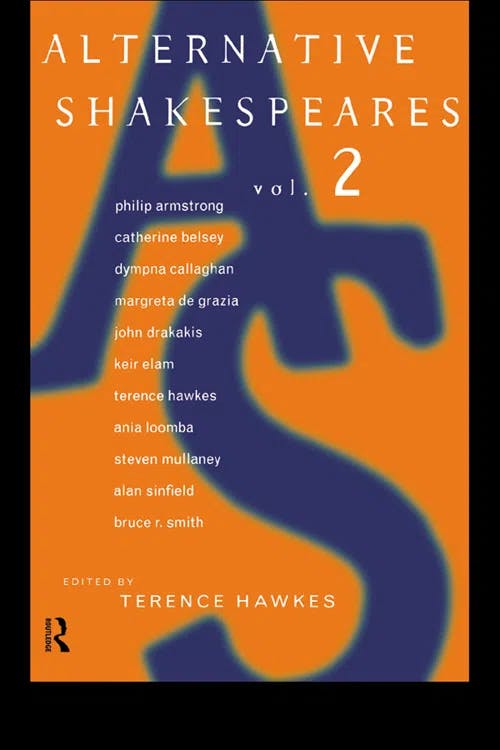What is Cultural Materialism?
PhD, English Literature (Lancaster University)
Date Published: 13.09.2023,
Last Updated: 24.01.2024
Share this article
Definition and origins
Cultural materialism argues that cultural works cannot be separated from their material, sociopolitical, and economic contexts. Texts, and other works of art, are informed by several factors — from the cultural, political, and economic forces which shape the narrative to the actual production of the text, such as the input of publishers and editors. Hegemonic forces, they argue, control the literary canon as a way to validate their own power and impose certain values on a culture. Taking this into account, cultural materialists study how dominant groups produce and control which texts become socially and historically important.
A cultural materialist would approach a text by taking into account a range of historical factors, in order to see if the text reflects the culture’s dominant values or subverts them. Cultural materialists focus on how cultural works can challenge, reaffirm, and even create ideology. Hywel Dix explains,
Cultural forms and especially literature do not just reflect other social events. The creation of these things is also a material part of the make-up of the society. (2013)
Hywel Dix
Cultural forms and especially literature do not just reflect other social events. The creation of these things is also a material part of the make-up of the society. (2013)
The term “cultural materialism” was coined by Raymond Williams in his essay “Notes on Marxism in Britain” in the New Left Review in 1976. Williams describes cultural materialism as
a theory of culture as a (social and material) productive process and of specific practices, of “arts”, as social uses of material means of production (from language as material “practical consciousness” to the specific technologies of writing and forms of writing, through to mechanical and electronic communications systems). (2020)
Raymond Williams
a theory of culture as a (social and material) productive process and of specific practices, of “arts”, as social uses of material means of production (from language as material “practical consciousness” to the specific technologies of writing and forms of writing, through to mechanical and electronic communications systems). (2020)
Williams further notes that we cannot homogenize entire historical groups or cultures:
A culture is common meanings, the product of a whole people, and offered individual meanings, the product of a man’s whole committed personal and social experience. It is stupid and arrogant to suppose that any of these meanings can in any way be prescribed; they are made by living, made and remade, in ways we cannot know in advance. (“Culture is Ordinary,” in Resources of Hope, 1958, [2016])
Raymond Williams
A culture is common meanings, the product of a whole people, and offered individual meanings, the product of a man’s whole committed personal and social experience. It is stupid and arrogant to suppose that any of these meanings can in any way be prescribed; they are made by living, made and remade, in ways we cannot know in advance. (“Culture is Ordinary,” in Resources of Hope, 1958, [2016])
Williams’ work has since been expanded upon by other cultural materialists, most notably Jonathan Dollimore and Alan Sinfield. In their collection, Political Shakespeare (1994), they outline four defining characteristics of the approach: historical context, theoretical method, political commitment, and textual analysis.
Cultural materialism has a great deal in common with new historicism, which emerged at around the same time in America. Both approaches privilege the context of a text, as opposed to new criticism which sees the text as largely autonomous and independent from its author and background contexts. As Christopher Marlow writes,
the relationship between cultural materialism and new historicism is perhaps best captured by another portmanteau, recorded by the OED as far back as 1953. They are frenemies. (2017)
Christopher Marlow
the relationship between cultural materialism and new historicism is perhaps best captured by another portmanteau, recorded by the OED as far back as 1953. They are frenemies. (2017)
In New Historicism and Cultural Materialism, John Brannigan identifies some key differences between the two:
cultural materialism privileges power relations as the most important context for interpreting texts, but where new historicists deal with the power relations of past societies, cultural materialists explore literary texts within the context of contemporary power relations. (2016)
John Brannigan
cultural materialism privileges power relations as the most important context for interpreting texts, but where new historicists deal with the power relations of past societies, cultural materialists explore literary texts within the context of contemporary power relations. (2016)
In other words, cultural materialists explore how present-day contexts impact our interpretation of historic texts. Cultural materialism, as a result, often focuses on political readings of texts, highlighting power dynamics in the construction and reception of the literary canon.
This guide will explore cultural materialism’s key influences, how cultural processes impact the production and reception of texts, and how marginalized groups and perspectives are amplified by cultural materialist interpretations.
Influences on cultural materialism from Marx to Foucault
Cultural materialism is indebted to the work of Karl Marx, Louis Althusser, and Michel Foucault, specifically their work on the creation of ideology.
In A Contribution to the Critique of Political Economy (1859), Karl Marx (founder of Marxism) argues that society is divided into the “base” and the “superstructure.” The base consists of everything associated with the means of production; from raw materials and machinery to the relations of production, such as employing workers and organizing labor. The base determines the superstructure, which consists of institutions such as the media, religion, art, family, education, and philosophy.
In “Ideology and Ideological State Apparatuses” (1969), philosopher Louis Althusser reexamined Marx’s superstructure model, suggesting that the base and the superstructure have a more complex and dynamic relationship (Althusser, in On the Reproduction of Capitalism, 2014). Rather than the superstructure simply being a by-product of the economic factors within a society, it, instead, helps to reinforce dominant ideologies which enable oppressive labor conditions.
Althusser argues that there are two main methods by which the state imposes ideology and maintains the status quo: the Repressive State Apparatus (RSA) and the Ideological State Apparatus (ISA). The RSA is the most covert form of control and includes institutions such as the police and the army. The ISA is more subtle and refers to institutions such as schools, family, and literature. Both these systems work together to help produce an obedient and productive workforce. Althusser explains that literature is a mode through which the state legitimizes its power and makes its ideology acceptable and familiar. As Althusser explains,
From nursery school on, the school takes children from all social classes and, from nursery school on and for years thereafter, the years when children are most ‘vulnerable’, stuck fast as they are between the scholastic and familial Ideological State Apparatuses, pumps them full, with old methods and new, of certain kinds of ‘know-how’ (French, arithmetic, natural history, science, literature) packaged in the dominant ideology, or, simply, of the dominant ideology of the pure state (ethics, civics, philosophy). (1969, [2014])
Louis Althusser
From nursery school on, the school takes children from all social classes and, from nursery school on and for years thereafter, the years when children are most ‘vulnerable’, stuck fast as they are between the scholastic and familial Ideological State Apparatuses, pumps them full, with old methods and new, of certain kinds of ‘know-how’ (French, arithmetic, natural history, science, literature) packaged in the dominant ideology, or, simply, of the dominant ideology of the pure state (ethics, civics, philosophy). (1969, [2014])
Brannigan draws upon several examples where we can see how literature is used as a tool to legitimize or reinforce the dominant ideology and power:
The appearance of the head of Dickens on the £10 note in English currency, the hologram image of Shakespeare on certain credit cards, and the stalwart insistence by conservative thinkers to maintain writers like Shakespeare and Austen on the national educational curriculum in Britain has prompted cultural materialists to be alert to the political and cultural appropriations of literary texts and authors and to examine the significance of these appropriations. (2016)
In his 1973 essay “Base and Superstructure in Marxist Cultural Theory,” Williams, like Althusser, criticized the Marxist concept of the economic base and superstructure. Williams argues that the base is a “process and not a state,” and as such “we cannot ascribe to that process certain fixed properties for subsequent translation to the variable processes of the superstructure” (1973, [2020]). Williams goes on,
We have to revalue ‘superstructure’ towards a related range of cultural practices, and away from a reflected, reproduced or specifically dependent content. And, crucially, we have to revalue ‘the base’ away from the notion of a fixed economic or technological abstraction, and towards the specific activities of men in real social and economic relationships, containing fundamental contradictions and variations and therefore always in a state of dynamic process. (Williams, 1973, in Culture and Materialism, 2020)
Any cultural theory, Williams argues, needs to account for how the superstructure can be autonomous from the economic base. Cultures are not automatically produced: people create cultural works often based upon their socioeconomic status, and personal history.
Like Althusser, Williams also argues that “hegemony [is] deeply saturating the consciousness of a society” (1973, [2020]). Literature, for Williams, is something that is “inescapably ideological” (“Crisis in English Studies,” in Writing in Society, 1983). Cultural materialists argue that when we analyze a work of art holistically (taking into account the relevant cultural, economic, social, and political contexts), we can see whether these texts are promoting, upholding, or subverting the dominant ideology.
A further influence on Williams’ cultural materialism is the work of philosopher and sociologist Michel Foucault, famed for his works Madness and Civilization (1961), Discipline and Punish (1975), and The History of Sexuality (1976). Throughout his work, Foucault draws attention to the reciprocal relationship between power and knowledge — and argues that hegemonic forces actually produce knowledge. He writes,
We must cease once and for all to describe the effects of power in negative terms: it ‘excludes’, it ‘represses’, it ‘censors’, it ‘abstracts’, it ‘masks’, it ‘conceals’. In fact, power produces; it produces reality; it produces domains of objects and rituals of truth. (Foucault, 1975, [2020])
Williams further develops Foucault’s ideas by examining how cultural processes are created and how they impact cultural works.
Cultural processes
One way of examining a text’s ideological alignment is through what Williams terms “epochal analysis.” This type of analysis involves studying the ways in which a culture, and the cultural works it produces, may reflect ideas and values from the past, as well as newly emerging ideas. Rather than culture being static, it is constantly being shaped and influenced by aspects of its past, present, and future.
In Marxism and Literature (1977), Williams argues that there are three main types of elements within a culture that shape historic movements and cultural works: dominant, residual, and emerging.
Dominant, or mainstream, features within a culture set the value systems and appraise what is good or acceptable art, determining social standards and norms.
Residual elements refer to aspects of a society that have “been effectively formed in the past, but [are] still active in the cultural process, not only and often not at all as an element of the past, but as an effective element of the present” (Williams, excerpted in Twentieth-Century Literary Theory, 1977, [1997]). These elements can be both beneficial and a threat to the dominant ideology. Institutions linked to an antiquated past, such as the Catholic Church, still support dominant ideologies and have much influence in the modern day. On the other hand, societies “cannot allow too much residual experience and practice outside itself, at least without risk” (Williams, 1977, [1997]).
Residual elements can pose a threat to the dominant culture when there is a “reaching back” to the “meanings and values” of the past, particularly when they “represent areas of human experience, aspiration, and achievement which the dominant culture neglects, undervalues, opposes, represses, or even cannot recognize” (Williams, 1977, [1997]).
Emergent elements present the biggest threat to the dominant ideology, and represent “new meanings and values, new practices, new relationships and kinds of relationships” (Williams, 1977, [1997]).
These new ideas are potentially dangerous as they challenge the existing order, encouraging innovation and potential change. Williams goes on to state that
no mode of production and therefore no dominant social order and therefore no dominant culture ever in reality excludes or exhausts all human practice, human energy, and human intention. (Williams, 1977, [1997])
Edited by K.M. Newton
no mode of production and therefore no dominant social order and therefore no dominant culture ever in reality excludes or exhausts all human practice, human energy, and human intention. (Williams, 1977, [1997])
New innovations may reveal something to be amiss with the dominant culture, and may call for a reassessment of the hegemonic power structures present within a society. If emergent elements gain ascendancy, a new class culture may be formed. Oppositional ideas can result in
the formation of a new class, the coming to consciousness of a new class, and within this, in actual process, the (often uneven) emergence of a new cultural formation. (Williams, 1977, [1997])
Dominant, residual, and emergent elements may all be present in a society at any one time.
Marginalized groups, unheard perspectives
Dominant cultures, cultural materialists argue, maintain power by shaping social norms, and defining what or who is considered socially acceptable or “Other.” As Dollimore and Sinfield write,
Ideology is composed of those beliefs, practices and institutions which work to legitimate the social order—especially by the process of representing sectional or class interests as universal ones. (“History and Ideology,” in Alternative Shakespeares, 2003)
Edited by John Drakakis
Ideology is composed of those beliefs, practices and institutions which work to legitimate the social order—especially by the process of representing sectional or class interests as universal ones. (“History and Ideology,” in Alternative Shakespeares, 2003)
Those who challenge aspects of the dominant ideology are subject to ideological and coercive repression. Dollimore and Sinfield use the example of the ruling elite in the Elizabethan period, who claimed to speak for everyone but persecuted those who did not conform and even used them as a scapegoat for social instability. Dollimore and Sinfield go on,
In the Elizabethan state all these institutions worked to achieve ideological unity—not always successfully, for conflicts and contradictions remained visible at all levels, even within the dominant class fraction and its institutions. The theatre was monitored closely by the state—both companies and plays had to be licensed—and yet its institutional position was complex. (2003)
Cultural materialism seeks to study texts in a way that amplifies previously neglected voices from history, acknowledging that the literary canon has been established and shaped through centuries to conform to the dominant hegemony. As such, marginalized voices have been erased. As Marlow writes,
Cultural materialism is [...] an approach to texts that emphasizes not their superiority over history and context, but the way that they are linked both with the material conditions of the historical past and, crucially, the political and institutional preoccupations of the present. (Shakespeare and Cultural Materialist Theory, 2017)
Cultural materialists focus on working-class and popular culture, as well as stories by and about women, queer people, and religious and ethnic minorities. A cultural materialist approach allows us to explore how the imposition of dominant ideologies has impacted the work of oppressed groups. As Williams notes, “You don’t live for centuries under the power of others and remain the same people” (1973, [2020]).
This approach challenges the liberal humanist view that texts such as Shakespeare’s are universal, reflecting values and perspectives that have timeless resonance. In The Subject of Tragedy, for example, Catherine Belsey contests the humanist idea that literature can be universally understood and appreciated, regardless of its context. She writes,
While in theory all men are equal, men and women are not symmetrically defined. Man, the centre and hero of liberal humanism, was produced in contradistinction to the objects of his knowledge, and in terms of the relations of power in the economy and the state. Woman was produced in contradistinction to man, and in terms of the relations of power in the family. (Belsey, 1985, [2014])
Catherine Belsey
While in theory all men are equal, men and women are not symmetrically defined. Man, the centre and hero of liberal humanism, was produced in contradistinction to the objects of his knowledge, and in terms of the relations of power in the economy and the state. Woman was produced in contradistinction to man, and in terms of the relations of power in the family. (Belsey, 1985, [2014])
Belsey identifies how tragedy offered opportunities for women to resist this alliance between liberal humanism and patriarchy. She explains how women becoming subjects, though defined by their relations to men, granted them a chance to speak and identify their own oppression. Belsey’s view resists an oversimplification of gender inequality in the Renaissance period, approaching gender representations with nuance and an appreciation for specific cultural contexts.
Ania Loomba and Martin Orkin argue that cultural materialist re-examinations of Renaissance culture opened up discussions around colonialism and race in Shakespeare:
Political criticism of Shakespeare as well as of early modern England has begun to show, with increasing detail and sophistication, that it is virtually impossible to seal off any meaningful analysis of English culture and literature from considerations of racial and cultural difference, and from the dynamics of emergent colonialisms. (“Introduction: Shakespeare and the post-colonial question,” in Post-Colonial Shakespeares, 2003)
Edited by Ania Loomba and Martin Orkin
Political criticism of Shakespeare as well as of early modern England has begun to show, with increasing detail and sophistication, that it is virtually impossible to seal off any meaningful analysis of English culture and literature from considerations of racial and cultural difference, and from the dynamics of emergent colonialisms. (“Introduction: Shakespeare and the post-colonial question,” in Post-Colonial Shakespeares, 2003)
They further identify that a challenge for scholars is balancing “early modern meanings of race, colonialism and cultural difference while exploring the contemporary imperatives of these terms” (Loomba and Orkin, 2003). In her previous work, such as Colonial/Postcolonialism (1998, [2015]), Loomba calls for a more nuanced understanding of colonial rule and its impact, with critics acknowledging that different nations and races have different histories of colonization.
However, some have argued that cultural materialism’s treatment of marginalized groups relies upon the very homogenization they claim to challenge. As Andrew Milner writes in Reimagining Cultural Studies (2002),
In general, post-colonial criticism has tended to rely on post-structuralist theories of ‘difference’ to decentre and deconstruct liberal humanist notions of an ‘essential’ (read ‘white’ and ‘European’) ‘truth’ and ‘humanity’. The manoeuvre works well enough as a relativisation of the dominant ‘metropolitan’ cultures, but only at the price of a threatened relativisation of subaltern identities and truth claims. For, if both Europeanness and otherness are constituted within and through discourse, then there can be no extradiscursively ‘real’ postcolonial identity, to which a postcolonial cultural politics might appeal.
Andrew Milner
In general, post-colonial criticism has tended to rely on post-structuralist theories of ‘difference’ to decentre and deconstruct liberal humanist notions of an ‘essential’ (read ‘white’ and ‘European’) ‘truth’ and ‘humanity’. The manoeuvre works well enough as a relativisation of the dominant ‘metropolitan’ cultures, but only at the price of a threatened relativisation of subaltern identities and truth claims. For, if both Europeanness and otherness are constituted within and through discourse, then there can be no extradiscursively ‘real’ postcolonial identity, to which a postcolonial cultural politics might appeal.
In other words, the category of “otherness” is too broad and fails to account for the distinctiveness of different subaltern identities.
Criticisms of cultural materialism
One of the issues with cultural materialism is its methodology. In particular, cultural materialists are often charged with coming to their textual interpretations with an agenda, hoping to find evidence of political transgression. This, of course, can lead to sometimes tenuous readings that are not wholly supported by the text. Key cultural materialist Jonathan Dollimore acknowledges this issue, stating that “we [cultural materialists] will listen in vain for voices from the past or search for their traces in a ‘history’ they never officially entered” (“Introduction,” in Political Shakespeare, 1994).
Neema Parvini concurs, writing that “it is politics above all that informs this model [...]” which, in turn, “colours and distorts” textual interpretation (Shakespeare’s History Plays, 2012). Parvini sees this as raising two significant problems. The first issue is that it “leads to an inflexible form of evidence-based reading that necessarily proves its own thesis” (Parvini, 2012). A further issue is that it “leads to the dangerous habit of artificially conflating all opposition to the same ‘liberal humanist’ Other” (Parvini, 2012).
Graham Bradshaw, one of cultural materialism’s biggest detractors, criticizes its approach to liberal humanism:
[The cultural materialist] substitutes an evil, reactionary, and repressively authoritarian Shakespeare for the good crypto-materialist Shakespeare whose true content and intentions were allegedly misrepresented and suppressed by the essentialist-idealist-liberal-humanist Enemy. As ever, the contradiction doesn’t matter as long as the critically contradictory readings advance the ideological “objective.” (2018)
Graham Bradshaw
[The cultural materialist] substitutes an evil, reactionary, and repressively authoritarian Shakespeare for the good crypto-materialist Shakespeare whose true content and intentions were allegedly misrepresented and suppressed by the essentialist-idealist-liberal-humanist Enemy. As ever, the contradiction doesn’t matter as long as the critically contradictory readings advance the ideological “objective.” (2018)
In other words, cultural materialism, in Bradshaw’s view, positions liberal humanist readings of Shakespeare as problematic. For example, a liberal humanist may argue that The Merchant of Venice (c. 1596) has universal relevance due to its themes of friendship, mercy, and revenge. A cultural materialist, however, would argue that this reading is essentialist and idealist as it ignores factors such as race.
Bradshaw continues, arguing that
this approach delivers either the good, subversive crypto-materialist Shakespeare, whom the “essentialist humanists” appropriate, misrepresent and suppress because They Are Evil; or the evil, authoritarian Bard whom “essentialist humanists” take to be Good, again because They Are Evil. (2018)
The concept of Shakespeare as a “crypto-materialist” positions cultural materialism as the “correct” reading. Bradshaw’s view is that by claiming Shakespeare as one of their own, and as someone only they can accurately represent, cultural materialists project their own values and ideologies onto Shakespeare.
Cultural materialism has also drawn the ire of critics such as Richard Levin. Levin argues that cultural materialism views the opposition (i.e. liberal humanism) as being an approach associated with “the upper class or patriarchy and their own approach with the victims” (Looking for an Argument, 2003). Parvini points out that by dismissing liberal humanists such as Levin, cultural materialists do not engage with credible points raised by their critics (2012).
Concluding thoughts
Cultural materialism allows us to rethink our traditional attitudes to historic works of art. It positions every artistic and logistical decision, from the representation of marginalized characters to how texts were produced or performed, as being conscious choices shaped by social, cultural, and political factors. For cultural materialists, nothing is created in a vacuum; no artistic decision is free of ideological influences.
Cultural materialists seek to recontextualize literary icons such as Shakespeare. John Drakakis writes,
The way to displace 'Shakespeare' from his pedestal as supreme icon of English culture is to return him to a context. That may involve a historical context in which the dramatist’s writing can be shown interacting fully with the writings of his contemporaries. It may involve those contexts in which texts are disseminated, received, read and performed, through institutions such as the publishing industry, literary criticism, the school, the university, the organs of high culture, popular culture and so on. (“Afterword: the next generation,” in Alternative Shakespeares: Volume 2, 2003)
Edited by Terence Hawkes
The way to displace 'Shakespeare' from his pedestal as supreme icon of English culture is to return him to a context. That may involve a historical context in which the dramatist’s writing can be shown interacting fully with the writings of his contemporaries. It may involve those contexts in which texts are disseminated, received, read and performed, through institutions such as the publishing industry, literary criticism, the school, the university, the organs of high culture, popular culture and so on. (“Afterword: the next generation,” in Alternative Shakespeares: Volume 2, 2003)
By confronting the hegemonic forces that have placed writers such as Shakespeare at the forefront of the English literary tradition, and by introducing a range of texts from other marginalized voices, cultural materialism encourages a critical assessment of the political nature of literature.
Further reading on Perlego
Alternative Shakespeares: Volume 3 (2007), edited by Diana E. Henderson
Raymond Williams: Literature, Marxism and Cultural Materialism (2013) by John Higgins
Shakespeare and Contemporary Theory: New Historicism and Cultural Materialism (2012) by Neema Parvini
Shakespeare, Authority, Sexuality: Unfinished Business in Cultural Materialism (2006) by Alan Sinfield
What is cultural materialism in simple terms?
Who are some of the major cultural theorists?
How is cultural materialism different from new historicism?
Bibliography
Althusser, L. (2014) On the Reproduction of Capitalism: Ideology and Ideological State Apparatuses. Verso. Available at: https://www.perlego.com/book/731098/on-the-reproduction-of-capitalism-ideology-and-ideological-state-apparatuses-pdf
Belsey, C. (2014) The Subject of Tragedy: Identity and Difference in Renaissance Drama. Routledge. Available at: https://www.perlego.com/book/1665041/the-subject-of-tragedy-routledge-revivals-identity-and-difference-in-renaissance-drama-pdf
Bradshaw, G. (2018) Misrepresentations: Shakespeare and the Materialists. Cornell University Press. Available at: https://www.perlego.com/book/741502/misrepresentations-shakespeare-and-the-materialists-pdf
Brannigan, J. (2016) New Historicism and Cultural Materialism. Bloomsbury Academic. Available at: https://www.perlego.com/book/2997848/new-historicism-and-cultural-materialism-pdf
Dix, H. (2013) After Raymond Williams: Cultural Materialism and the Break-up of Britain. University of Wales Press. Available at: https://www.perlego.com/book/573117/after-raymond-williams-cultural-materialism-and-the-breakup-of-britain-pdf
Dollimore, J., and Sinfield, A. (eds.) (1994) Political Shakespeare: Essays in Cultural Materialism. Manchester University Press. Available at: https://manchesteruniversitypress.co.uk/9780719043529/
Drakakis, J. (ed.) (2003) Alternative Shakespeares. Routledge. Available at: https://www.perlego.com/book/1619608/alternative-shakespeares-pdf
Foucault, M. (2020) The History of Sexuality Volume 1: An Introduction. Penguin Random House. Available at: https://www.penguin.co.uk/books/23884/the-history-of-sexuality-1-by-michel-foucault-trans-robert-hurley/9780241385982
Foucault, M. (2020) Discipline and Punish: The Birth of the Prison. Penguin. Available at: https://www.penguin.co.uk/books/13651/discipline-and-punish-by-michel-foucault-trans-alan-sheridan/9780241386019
Foucault, M. (1998). Madness and Civilization: A History of Insanity in the Age of Reason. Penguin Random House. Available at: https://www.penguinrandomhouse.com/books/55031/madness-and-civilization-by-michel-foucault/
Hawkes, T. (ed.) (2003) Alternative Shakespeares: Volume 2. Taylor and Francis. Available at: https://www.perlego.com/book/1619334/alternative-shakespeares-volume-2-pdf
Levin, R. L. (2003) Looking for an Argument: Critical Encounters with the New Approaches to the Criticism of Shakespeare and His Contemporaries. Fairleigh Dickinson University Press.
Loomba, A., and Orkin, M. (eds) (2003) “Introduction: Shakespeare and the post-colonial question,” in Post-Colonial Shakespeares. Routledge. Available at: https://www.perlego.com/book/1613423/postcolonial-shakespeares-pdf
Loomba, A. (2015) Colonial/Postcolonialism. Routledge. Available at: https://www.perlego.com/book/1563268/colonialismpostcolonialism-pdf
Marlow, C. (2017) Shakespeare and Cultural Materialist Theory. The Arden Shakespeare. Available at: https://www.perlego.com/book/807563/shakespeare-and-cultural-materialist-theory-pdf
Marx, K. (2011) A Contribution to the Critique of Political Economy. Barnes & Noble. Available at: https://www.perlego.com/book/3714414/a-contribution-to-the-critique-of-political-economy-barnes-noble-digital-library-pdf
Milner, A. (2002) Reimagining Cultural Studies: The Promise of Cultural Materialism. Sage Publications Ltd. Available at: https://www.perlego.com/book/863487/reimagining-cultural-studies-the-promise-of-cultural-materialism-pdf
Parvini, N. (2012) Shakespeare’s History Plays. Edinburgh University Press. Available at: https://www.perlego.com/book/2330065/shakespeares-history-plays-rethinking-historicism-pdf
Shakespeare, W. (2014) The Merchant of Venice. Simon & Schuster. Available at: https://www.perlego.com/book/781912/the-merchant-of-venice-pdf
Williams, R. (2016) Resources of Hope: Culture, Democracy, Socialism. Verso. Available at: https://www.perlego.com/book/730830/resources-of-hope-culture-democracy-socialism-pdf
Williams, R. (2020) Culture and Materialism. Verso. Available at: https://www.perlego.com/book/1841609/culture-and-materialism-pdf
Williams, R. (1977) Marxism and Literature. Oxford University Press. Available at: https://global.oup.com/academic/product/marxism-and-literature-9780198760610?q=marxism%20and%20literature&lang=en&cc=gb
Newton, K. M. (1997)Twentieth-Century Literary Theory: A Reader. Red Globe Press. Available at: https://www.perlego.com/book/3008745/twentiethcentury-literary-theory-a-reader-pdf
PhD, English Literature (Lancaster University)
Sophie Raine has a PhD from Lancaster University. Her work focuses on penny dreadfuls and urban spaces. Her previous publications have been featured in VPFA (2019; 2022) and the Palgrave Handbook for Steam Age Gothic (2021) and her co-edited collection Penny Dreadfuls and the Gothic was released in 2023 with University of Wales Press.

